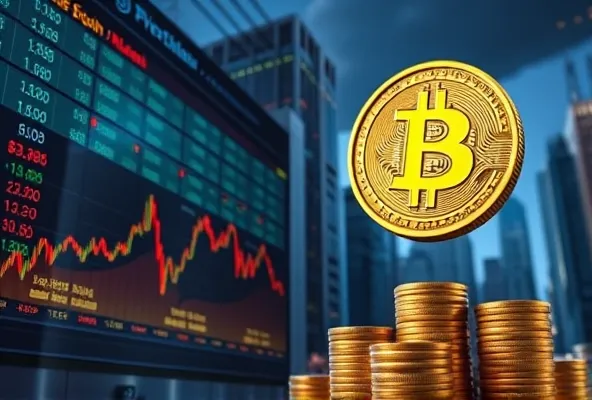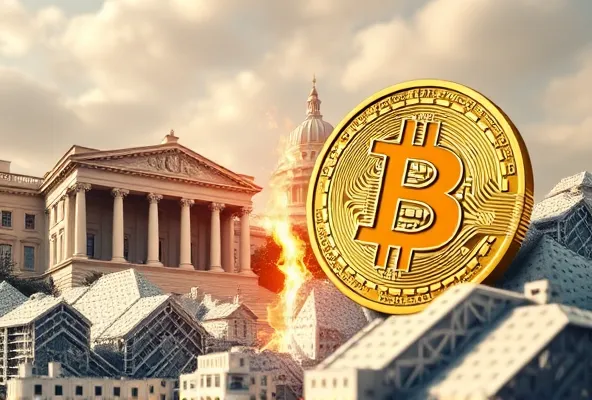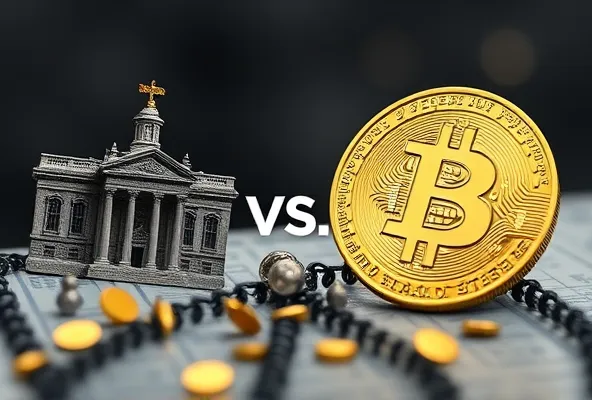A Story of Curiosity and Conviction
Imagine Sarah, a cautious but curious investor who has been following Bitcoin’s journey for years. She watched as the price surged and dipped, intrigued by both the excitement and skepticism surrounding this digital asset. Sarah has always stuck to traditional investments like stocks and bonds, but something about Bitcoin piqued her interest. After reading articles, attending webinars, and talking to other investors, Sarah began to realize that Bitcoin might be more than just a trend—it could be a transformative asset with the potential for growth and resilience.

 Interior
Interior Exterior
Exterior Engine
Engine


If, like Sarah, you’re curious about Bitcoin and want to understand its true potential as an investment, this article will guide you through the key factors that make Bitcoin a compelling choice. From its scarcity to its decentralized structure and high growth potential, we’ll explore what makes Bitcoin a sound investment.

Table of Contents
- Understanding Bitcoin’s Value Proposition
- Why Bitcoin’s Limited Supply Matters
- Bitcoin as a Hedge Against Inflation
- The Appeal of Decentralization
- Global Accessibility and Financial Inclusion
- Growing Institutional Interest and Adoption
- Liquidity and Market Maturity
- Bitcoin’s Long-Term Growth Potential
- Security and Transparency Through Blockchain
- Comparing Bitcoin to Traditional Investments
- Conclusion: The True Value of Bitcoin as an Investment
1. Understanding Bitcoin’s Value Proposition
A Unique Digital Asset
Bitcoin is often referred to as “digital gold” due to its scarcity and store-of-value properties. It’s the first cryptocurrency that introduced the world to a decentralized, secure form of digital currency. Unlike fiat currencies, Bitcoin is not controlled by any government or financial institution, offering a unique investment opportunity for those looking to diversify.
A New Kind of Wealth Storage
Bitcoin provides a modern, digital alternative to traditional assets. Its decentralized nature, combined with limited supply, makes it an asset with characteristics similar to precious metals, appealing to investors seeking to preserve value in a rapidly changing financial landscape.
2. Why Bitcoin’s Limited Supply Matters
Understanding Scarcity
Bitcoin’s maximum supply is capped at 21 million coins, meaning that no more Bitcoin can be created beyond this limit. This scarcity is hard-coded into its protocol, making it immune to inflationary pressures that affect fiat currencies, which can be printed in unlimited quantities by central banks.
The Concept of “Digital Gold”
Just as gold’s scarcity contributes to its value, Bitcoin’s fixed supply plays a similar role in driving demand and increasing value. As more people and institutions invest in Bitcoin, its scarcity is expected to drive up the price, making it a sound investment for those looking to benefit from long-term appreciation.
3. Bitcoin as a Hedge Against Inflation
Impact of Inflation on Traditional Currencies
In times of high inflation, the value of fiat currency erodes, leading to decreased purchasing power. Central banks often respond by printing more money, which can exacerbate inflation. Bitcoin, with its fixed supply, offers a hedge against this, as its value isn’t affected by central bank policies.
A Safe Haven in Economic Downturns
Many investors turn to Bitcoin as a safe haven during economic downturns. In countries with unstable economies, people increasingly rely on Bitcoin to protect their savings, as it offers an alternative store of value that’s resilient to currency devaluation.

4. The Appeal of Decentralization
Freedom from Central Control
Bitcoin operates on a decentralized network powered by blockchain technology, meaning it’s not controlled by any single entity or government. This decentralized nature makes it more resilient to political influence, providing a form of financial freedom that’s appealing to investors who value autonomy.
Peer-to-Peer Transactions
Bitcoin’s peer-to-peer network enables direct transactions between users without intermediaries, reducing transaction costs and speeding up transfers. This decentralized structure increases Bitcoin’s appeal as a tool for secure, low-cost international transactions.
5. Global Accessibility and Financial Inclusion
Accessible to Anyone with Internet Access
Bitcoin provides financial access to people worldwide, including those in regions without reliable banking services. As long as there’s internet access, individuals can buy, hold, and transfer Bitcoin, making it an inclusive asset that democratizes financial participation.
Empowering the Unbanked
Bitcoin offers a lifeline to the unbanked population, giving individuals a secure place to store value and access financial services without needing a bank account. This inclusivity is part of what makes Bitcoin a revolutionary asset for global finance.
6. Growing Institutional Interest and Adoption
Mainstream Acceptance
In recent years, Bitcoin has gained acceptance from major corporations and financial institutions. Companies like Tesla, Square, and MicroStrategy have added Bitcoin to their balance sheets, and traditional financial firms like Fidelity, JPMorgan, and Goldman Sachs now offer Bitcoin-related products.
Bitcoin ETFs and Financial Products
The introduction of Bitcoin ETFs and other financial products allows investors to gain exposure to Bitcoin without holding it directly. This broader access through traditional investment platforms contributes to Bitcoin’s legitimacy and strengthens its position as a mainstream asset.
7. Liquidity and Market Maturity
High Liquidity and 24/7 Market
Bitcoin’s market is global and operates 24/7, allowing investors to buy or sell anytime, regardless of location. High liquidity means that trades are executed quickly, and investors can access their funds when needed, providing flexibility compared to traditional assets with limited trading hours.
Increased Market Maturity
As Bitcoin matures, its infrastructure has become more robust. The growth of exchanges, custodial services, and regulatory frameworks has made Bitcoin a safer, more reliable investment, attracting institutional investors and contributing to market stability.

8. Bitcoin’s Long-Term Growth Potential
Historical Price Performance
Bitcoin’s historical performance has shown impressive growth, outpacing traditional assets like stocks, bonds, and commodities. While it’s a volatile asset, its upward trajectory over the past decade has rewarded long-term holders, making it attractive for investors looking for substantial growth.
Expert Predictions
Many analysts believe that Bitcoin’s limited supply and growing demand could drive its price to new heights in the coming years. Predictions range from Bitcoin reaching $100,000 to even higher levels as more institutions adopt it and its infrastructure evolves.
9. Security and Transparency Through Blockchain
The Power of Blockchain
Bitcoin operates on a public, immutable blockchain, where all transactions are securely recorded. This transparency increases trust, as anyone can verify transactions, but sensitive information is kept private. Blockchain’s decentralized nature adds an additional layer of security.
Secure Storage Options
With the advent of hardware wallets, multi-signature wallets, and institutional-grade custodial services, Bitcoin storage is more secure than ever. These options allow investors to protect their Bitcoin holdings from online threats, making it a secure digital asset.
10. Comparing Bitcoin to Traditional Investments
Bitcoin vs. Stocks
Stocks offer ownership in companies and can provide dividends, but they’re subject to market hours, company performance, and economic cycles. Bitcoin, by contrast, operates independently of any single entity, offering financial freedom, high liquidity, and global accessibility.
Bitcoin vs. Gold
Gold is a physical asset with a long history as a store of value. However, it requires physical storage and is not easily transferable. Bitcoin’s digital nature makes it easier to store, transfer, and access. Its scarcity and decentralized structure make it an attractive alternative to gold as a store of value.
Bitcoin vs. Bonds
Bonds are low-risk but low-return investments, and they’re affected by interest rates and inflation. Bitcoin, while more volatile, offers higher growth potential and an inflation hedge, making it appealing for risk-tolerant investors seeking higher returns.
FAQ: Addressing Common Bitcoin Investment Questions
Q1: Is Bitcoin a safe investment?
Bitcoin’s decentralized nature and blockchain technology make it secure, but it’s volatile. Safe investment practices include using secure wallets, choosing reliable exchanges, and only investing what you can afford to lose.
Q2: Can Bitcoin be used as an inflation hedge?
Yes, Bitcoin’s fixed supply makes it immune to inflationary pressures. Unlike fiat currencies that lose value with inflation, Bitcoin’s scarcity model makes it a viable store of value.
Q3: Is it too late to invest in Bitcoin?
No, experts believe Bitcoin’s long-term growth potential is still strong. While past performance isn’t a guarantee of future returns, Bitcoin’s adoption and market growth suggest there’s still opportunity for investors.
Q4: How is Bitcoin different from other cryptocurrencies?
Bitcoin was the first cryptocurrency and remains the most widely recognized and valued. Its scarcity, security, and decentralized nature distinguish it from many other digital assets.
Q5: Can Bitcoin be hacked?
The Bitcoin blockchain itself is highly secure, but exchanges and wallets can be vulnerable. Using secure, trusted platforms and keeping Bitcoin in a hardware wallet minimizes risk.
Q6: Is Bitcoin legal?
Yes, Bitcoin is legal in most countries, though some have restrictions. Regulations vary, so it’s essential to understand your country’s stance before investing.
Q7: What’s the minimum investment for Bitcoin?
You don’t need to buy a whole Bitcoin; it’s divisible down to eight decimal places. Many exchanges allow investments as low as a few dollars, making it accessible to nearly anyone.
Q8: How do I store Bitcoin safely?
Bitcoin can be stored in digital wallets, either hot (online) or cold (offline). Cold wallets, such as hardware wallets, provide added security by keeping Bitcoin offline.
Q9: Can Bitcoin replace traditional currency?
While Bitcoin is used as a currency in some cases, it’s more commonly seen as a store of value. Many believe Bitcoin complements rather than replaces traditional currency.
Q10: Do I need technical knowledge to invest in Bitcoin?
No, many platforms are designed for beginners. While technical knowledge is helpful, most exchanges and wallets are user-friendly and require minimal setup.
Q11: Can Bitcoin be converted to cash?
Yes, Bitcoin can be sold on exchanges for cash or converted to local currency via ATMs and payment platforms that support cryptocurrency.
Q12: Are Bitcoin gains taxable?
In most countries, Bitcoin is subject to capital gains tax. Consult a tax professional to understand your obligations based on your location and investment activities.

Conclusion: The True Value of Bitcoin as an Investment
Bitcoin’s journey from an experimental asset to a mainstream investment has reshaped how people view financial independence, wealth preservation, and growth potential. Its limited supply, decentralization, accessibility, and resilience make it a sound investment choice for those looking to diversify beyond traditional assets. While it may not be suitable for everyone, Bitcoin offers a unique opportunity to participate in the future of finance, bridging the gap between digital innovation and financial security. By understanding its true value beyond the hype, investors can make informed decisions about adding Bitcoin to their portfolios.










